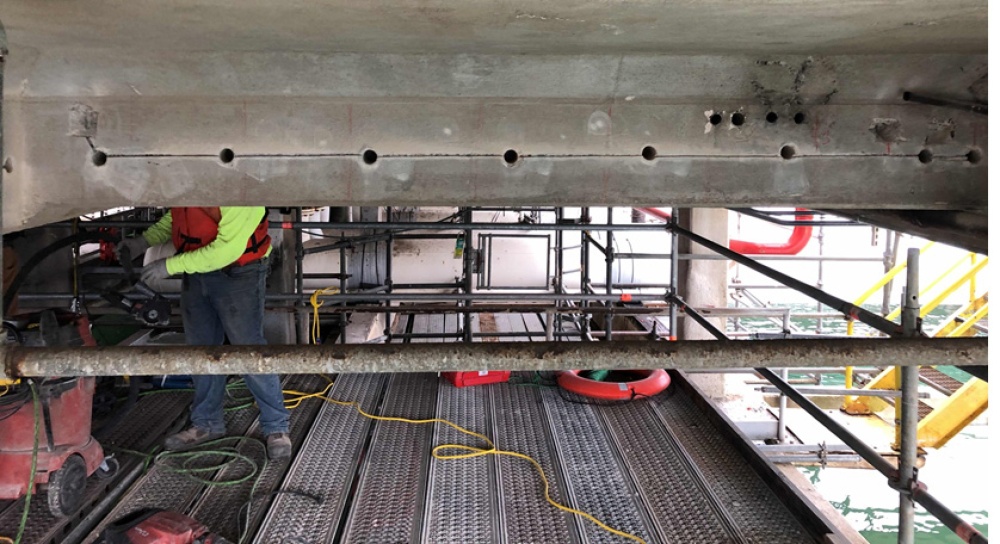Redesigning a Texas Port's Cathodic Protection System to Extend the Service Life by 25+ Years | Texas, USA

Services Applied by VCS Engineering
Project Description
As a result of this severe corrosion deterioration, in 1993 the Port’s asset management division installed an arc spray zinc (ASZ) galvanic cathodic protection (GCP) system to mitigate corrosion activity and protect the two dock’s reinforced concrete elements from further deterioration. In 2019, 26 years after the installation of the original GCP system, Oil Docks 4 and 7 again began to show signs of concrete deterioration due to reinforcement corrosion. This was due to the original ASZ system no longer providing protection to the oil docks. An ASZ system typically has a service life between 10-20 years depending on the exposure environment, with a coastal environment being the most aggressive on the cathodic protection service life.
Project Issue
The installation process of a proposed new ASZ system created logistical issues when dealing with the hot work schedule of the port. These inefficiencies caused the project budgets to balloon. An alternative solution was needed to expedite the project timeline and reduce cost.

Project Solution
VCS was contracted to provide an alternate Cathodic Protection (CP) solution to the current ASZ. VCS began by redesigning the cathodic protection system to last 25 years using two-stage anodes along each beam and column supporting the oil dock structure.
Over a period of 6 months, over 3,000 two-stage anodes were installed into the beams and columns to extend the service life of Oil Docks 4 and 7 at a Port in Texas. The valued engineering services and the newly proposed CP system was able to save the Port approximately $1.6 million in overall project cost, maintained the proposed completion schedule, and further extend the service life of the Oil Docks than what could have been achieved with ASZ.
The project was completed successfully within the desired schedule and budget. Both oil docks are currently active and fully operational without any signs of active corrosion and anode monitoring shows the system is functioning as designed. There were many challenges to the project however through consistent communication and teamwork, the construction activities did not affect the berthing and loading/unloading of the inbound or outbound oil tankers and the Port was ultimately able to keep the oil docks operational throughout the construction phase and continue to be one of the nation’s most important ports.